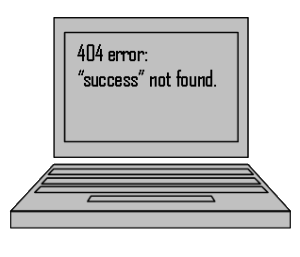 The independent publishing movement is maturing at an astonishing rate. Everything is still evolving and changing daily, but anyone who is paying attention can see we look a whole lot different than when we started.
The independent publishing movement is maturing at an astonishing rate. Everything is still evolving and changing daily, but anyone who is paying attention can see we look a whole lot different than when we started.
Indie books are getting better. The product is more finished and professional than a few years ago. Covers are better. Writing is better. There are more success stories each year. The communities are stronger, and we are fighting our way through the learning curve.
Part of what holds us back is the impulse to emulate the old model of publishing to achieve the old standard of success. On some level, we know that big ink was never what it pretended to be. Too much has come out about how the dead tree empires twisted and manipulated sales figures to include pre-orders of books that were ultimately returned after “bestseller” status was achieved. We know about the hollow victories claimed by pay-to-play award winners, and the phony review buzz. In spite of all their moaning about worthless, unreadable drek, we know big ink cares little about literary virtue where profit is concerned.
On some level, we yearn for what never really was. We want what we thought big publishing was. Some of us want it so badly, we try to create indie versions of it. The problem is, it doesn’t work and it never can.
 Gatekeeping cannot work in the new publishing model for the very simple reason that there is no gate. The walls between reader and writer are gone. If your excellent book is floundering, don’t point an accusing finger at the abundance of poor quality indie writing. In the new model, it’s not up to the readers to find your golden nugget among a heap of coal. It’s your responsibility to place it before them. These days, you would be much wiser to concentrate on finding a publicist than a publisher.
Gatekeeping cannot work in the new publishing model for the very simple reason that there is no gate. The walls between reader and writer are gone. If your excellent book is floundering, don’t point an accusing finger at the abundance of poor quality indie writing. In the new model, it’s not up to the readers to find your golden nugget among a heap of coal. It’s your responsibility to place it before them. These days, you would be much wiser to concentrate on finding a publicist than a publisher.
Big box brick and mortar presence is irrelevant because big box brick and mortar stores are dying. Many are gone already. The others will follow. They were too reliant on low-risk sweetheart deals from big publishing to survive. Amazon has pulled the plug on this old way of business. We are just waiting for the flatline. Indie brick and mortar stores may see a golden age if they can settle on a business model that works for both the authors and their own stores, but they will not survive if they simply do smaller what big stores did badly.
Print on demand technology might be the savior of local bookstores. Instead of maintaining a large print inventory, bookstores could let customers browse on touchscreens, order their book to be printed on site, and it would be ready by the time they finished their latte. Yes, those machines are expensive, but think “lease” instead of “buy.”
Neither can indie publishers get away with replicating the bad habits of their dinosaur predecessors. If a publishing company can’t get indie books into markets authors can’t reach, if they can’t contribute significantly to the discoverability and success of the books bearing their own imprimatur, why do we need them? Indie publishers need to do a better job of figuring out how to add value.
 The whole publishing world is changing. There are plenty of challenges for indie authors who already are yoked with a panoply of responsibilities beyond merely writing. Even as we scramble to master new skill sets, technology introduces yet more vistas. Will the next generation of e-books include features like soundtracks, video author commentary, or direct access to an author’s fan site or blog? Will the next big thing be book auction sites, wherein groups of authors put up a limited number of books to go to the highest bidders, splitting profit with worthy causes? Will double-features, including books by two different authors, become the new hotness?
The whole publishing world is changing. There are plenty of challenges for indie authors who already are yoked with a panoply of responsibilities beyond merely writing. Even as we scramble to master new skill sets, technology introduces yet more vistas. Will the next generation of e-books include features like soundtracks, video author commentary, or direct access to an author’s fan site or blog? Will the next big thing be book auction sites, wherein groups of authors put up a limited number of books to go to the highest bidders, splitting profit with worthy causes? Will double-features, including books by two different authors, become the new hotness?
It doesn’t matter. Whatever comes along, indies are better positioned to explore, experiment, and conquer it than the good old boys. We don’t have to run it by the board of directors, establish an exploratory committee, and have a round of meetings to determine whether we want to give something a try. Whatever comes along, we’re on it like a monkey on a cupcake. Then we report back to each other in a thousand different forums. Sure, there will be difficulties and mistakes, but we will learn from those too. The new world is our world. Let’s not cling to what was, nor try to build monuments upon that rotten, crumbling foundation. Move forward.

Good article. Thanks Stephen.
Thanks, Phillip. 🙂
” Instead of maintaining a large print inventory, bookstores could let customers browse on touchscreens, order their book to be printed on site, and it would be ready by the time they finished their latte. ” —
Someone has read my blog (http://massimomarinoauthor.com/2013/11/still-conflicted-amazon-rachelle-gardner/), or the discussion of Forbes 🙂
Great post, Stephen, and of course I agree with all you said and flattered too. 🙂
Personlly, I have a hard time seeing that saving bookstores. If people will buy that way (instead of just having books mailed to them) then they could buy them in a machine in front of the supermaket or in the airport lobby or wherever. (If anybody can figure out how to keep supplying those machines with paper)
That will come as well, but it will cover a different kind of customers. I don’t think it will be a lifesaver for everyone and bookstores will have to find new reasons for readers to keep visiting organizing, maybe, more events with local authors (and this will serve more the Indie writers than anyone else), book clubs, and having a good latte machine as well 😉
I agree that it is doubtful that bookstore in their current form will survive. They may become hybrid businesses, or be incorporated with other types of businesses.
Thanks very much, Massimo. 🙂
Amen!
🙂
Thanks for such a good article showing how very exciting life can be in Indie World.
Glad you liked the article. Thanks for your comment, Mary.
I work at an Indie Publisher…and man is it an exciting time! It is the rise of the Indie Publisher!
This is what I’ve been preaching all along, Stephen. PLAY YOUR OWN GAME, NOT THEIRS. I cringe to see authors chirping about paying big bucks to be able to get return clauses so they can get their books into physical stores–a death march for indie authors, and pointless except for some vague “I’m REAL!” ego massage.
You can’t compete with big outfits in the stores. They pay huge money for positioning, to name only one of their advantages. Guerilla warfare types don’t go shopping for jets and tanks and fancy dress uniforms to be like the “real armies”.
At this point indies actually have marketing systems superior to what the companies are using. Unfortunately, the big outfits are starting to hip up to them, to an extent.
But the bottom line has been the same since the inception of the current indie enablement: do it your way, the way that works. Don’t look over your shoulder or try to appear to be something else, because it will sink you.
Amen.
How true, Lin. Emulating the broken parts of the old system seems as wrong as you can get.
Great piece, as always, EM.
Thanks, Big Al. 🙂
Amen, brother.
As an author sailing the waters between the Old World and the New World of publishing I yearn for the safe shore, which one? I’ve published seven books independently and keep thinking that the Old World shore is best, Stephen your wise article only confuses the my helm and the compass. Big decision is coming, as always thanks for the sage advice.
I don’t know if there is a safe shore. Ships are safe in harbor, but ships were not built to stay in harbor. Embrace the adventure. 😉
Great post! And a perfect counterpoint to the bleating and whining that still sometimes leaks out about indie writing and publishing. Onward and upward!
Thanks, Melissa.
There’s no point in doing anything to save bookstores, big box or independent. They’ve already proven that they DO NOT CARE. Oh, sure they care about their own profits, but they don’t care about adapting to changes in the marketplace, or making things easier for customers. And they certainly don’t make things easy for the new indie movement to get their wares into their stores since, I guess, any of us could be using Amazon as well to sell them, too.
Getting mad at e-books and Amazon is going to be counterproductive to them in the end, because while they rant and rave about the Evil Empire, things around them are changing. Imagine if Starbucks suddenly decided to sell books? Or partnered with Amazon to have a wifi merchandise hub in their stores? Indie bookstores, R.I.P.
Which, with their current attitudes, is the obvious dénouement to their business model. I’ve mentioned before that my county has one (1) bookstore. And it’s a used book store about four blocks from my house. Want to know how many times I’ve been in it? Once. When it opened, the same year I got my first Kindle. Half-price mass-market paperbacks cannot win over e-books and Amazon marketplace sellers.
Oh and before I forget in mid-rant, great post, Mr. Hise 🙂
Thanks very much, sir. 🙂
“Like a monkey on a cupcake.”
🙂 Well said, sir.
😉
“These days, you would be much wiser to concentrate on finding a publicist than a publisher.” Spot on, EM. Great post!
Thanks, Lynne. 🙂
Great post, very well said. Thanks
Thanks for the comment, Frank. 🙂
I agree that a publicist is for most Indies a better investment. We know how to do everything else ourselves, anyway. Getting a little bit of inspiration on how to crack the discoverability code would be welcome.
Great post, EM.
That discoverability code is the big one, all right. Thanks, Lois. 🙂
I don’t know much about publicists, but I wonder what they could do that I don’t do myself.
That’s true with any of these guys though. If they can’t deliver results, who needs them? Great comment, Helen.
Yep, I fall in line with the others. Driving around today I was thinking about how do we think waaaay outside the box. Forget the box, what can we do different to share what we have with others. Of course, I didn’t have the answer, but I’m thinking …
Exactly, Jim. Thanks for the comment. 🙂
Stephen: It’s odd the way you seem to follow up on stuff running through my mind. Yesterday I came across an ebook on Amazon priced at $11.04. Holy smokes! I wondered if the book would arrive on ereaders wrapped in gold foil. The publisher is St. Martin’s Press and there is a raft of reviews complaining about the formatting and editing. What were they thinking? Today there is a big e-book promo by Morrow House on a book published in 1985. It seems to me the brick and mortar publishers have their eye on digital to boost sales of their back lists and perhaps books lying dormant on bookshelves. Are they learning from indie authors?
Great comment, Jackie. I don’t know who would buy an e-book for such an exorbitant price.
As to whether anyone is learning from indie authors, we’ll see. I suspect the capacity just isn’t there for many of them.
Great post Stephen! Even back in the old days, the trail blazers in business were those companies that were small enough, and hungry enough to think outside the box. The publishing box is crumbling but many of us are still huddled in the middle of the space where the box used to be, fearful of exploring what lies beyond. Freedom can be scary, but the rewards far out weigh the risks.
Well put. 🙂
Wow Stephen… way to rally the troops! That’s why you are the EM: the indie revolution’s ‘Che Guevara’ and no mistake. You are spot on of course and, wherever the final model surfaces, this tight little IU guerrilla force will be among the survivors.
Excellent article, Stephen.
Thanks T.D. I like to think of myself as a simple man who wants nothing more from life than to be fabulously wealthy and to rule the world. Is that really so much to ask? 😉
You are so correct with this post, Stephen. The Indie movement is here to stay. We can learn from the demise of the big chain stores and the obvious going down the toilet of the Big Six. Many of my author friends involved with IU have come a long way in a short time. They are the new examples of what publishing is all about!
Blaze McRob
Interesting article! I turned down my last contract from my publisher because it just wasn’t a good deal. I’m not anti-publisher, but I am anti-bad deals for authors. Thanks for the note!